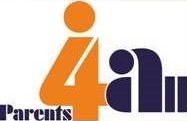
Migrant and Refugee Integration as a Two-Way Process: Opportunities and Challenges in Education
A major challenge for the increasingly multicultural Europe, amidst the ongoing refugee crisis, is the smooth social integration of ethnic and cultural minorities (ECM), including their children. Migrant integration takes place at multiple levels, and one of the most sensitive fields is that of school education. There are many interventions focusing on teacher competence, the concept of intercultural education, and diversity management in the classroom.
However, another important factor affecting the integration process is parental engagement and attitude. Both parents from the host societies and ECM parents have direct influence on the attitude, behaviour and performance of their children, and consequently the integration process as a whole. Positive parental engagement is of paramount importance for the social inclusion of ECM children.
The overall objective of the Parents4all project is to raise awareness, empower, and develop the intercultural competences among parents of the host society and parents belonging to ethnic or cultural minorities (ECM) in order to enable them to contribute effectively to the social inclusion of ECM school-age children.
Improved competences and increased awareness on behalf of parents are expected to have a positive effect on the interaction of pupils of different origins, cooperation with school, and social integration in general.
Assessment Toolkit
The final Parents for All Self-Assessment Toolkit was launched on 7th November 2019 at the final project conference in Athens with multiple speakers from the Parents for All project and speakers from the Municipality of Athens Department for the Support and Social Inclusion of Migrants and Refugees by Marigo Chormoviti, Akrivi Panagiotopoulou, Olympic Training, Kristina Kudriasova from Lithuania, and Tanveer Parnez from BEMIS Scotland. A short film and discussion by Martin Kilgus from Germany. We also had Helen Georgakakou, from Hellenic Open University on creating two-way integration tool, and Intervention in Refugee Camps on Results and further needs from Tita Kaissari from Unicef.
The toolkit is now available at http://parents4all.eu/outputs/self-assessment-toolkit-for-intercultural-competences/
This toolkit can help parents assess their need for the training material, their progress after the training, as well as their improvement in intercultural competences.
The toolkit for parents from host societies is available in all partner languages, whereas the one for ECM parents only in English. The toolkit is available in two formats (online interactive and pdf) in order to enable its use in different learning settings.
Self-assessment toolkit of intercultural competences is now downloadable from http://parents4all.eu/
You can download the complete pdf edition; and work collaboratively on an interactive edition of the toolkit: Online Interactive edition
All information can be found at: http://parents4all.eu/
